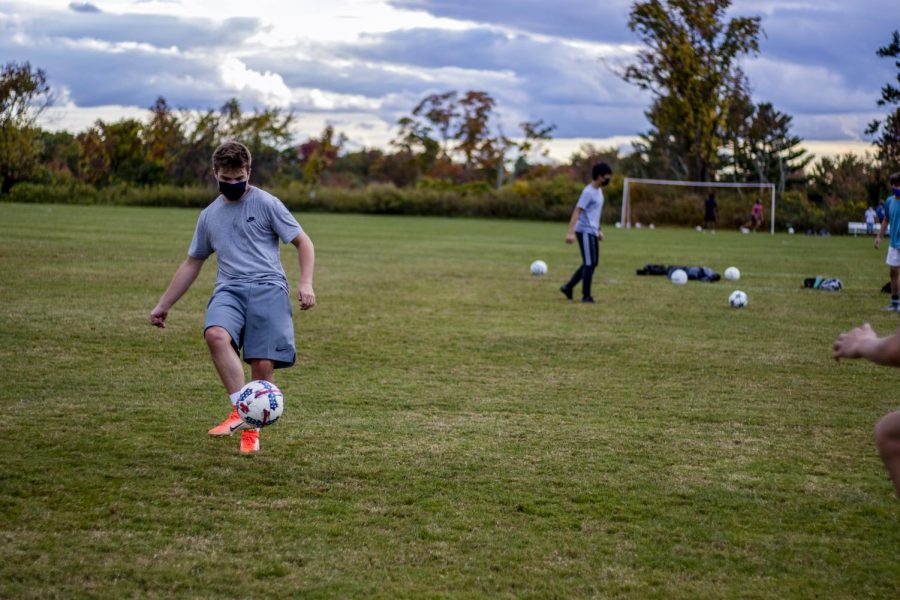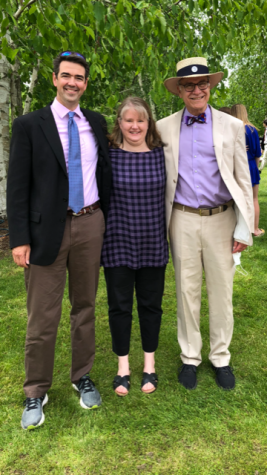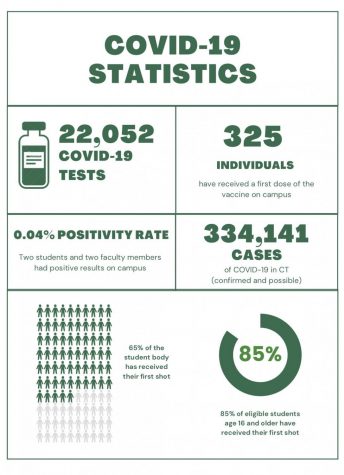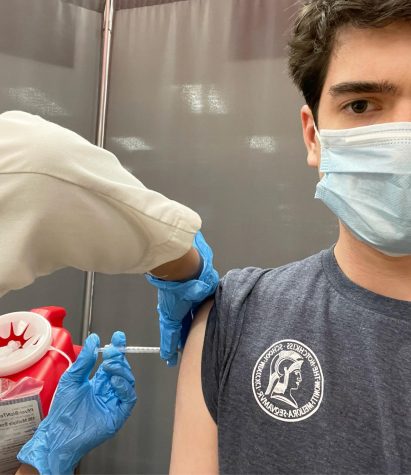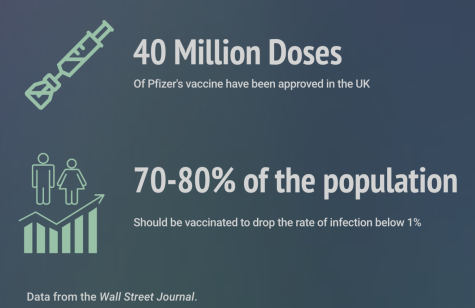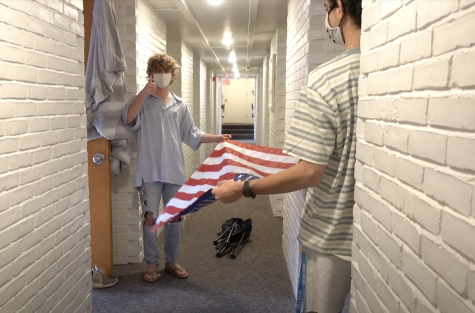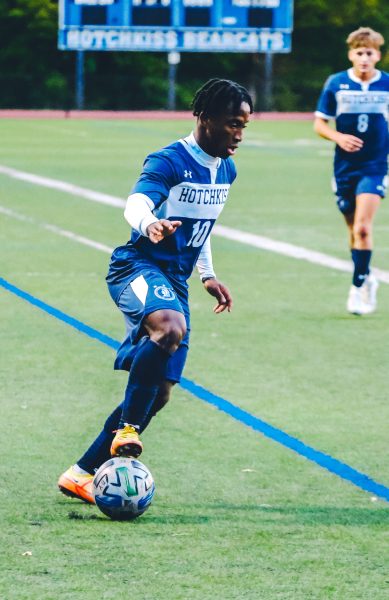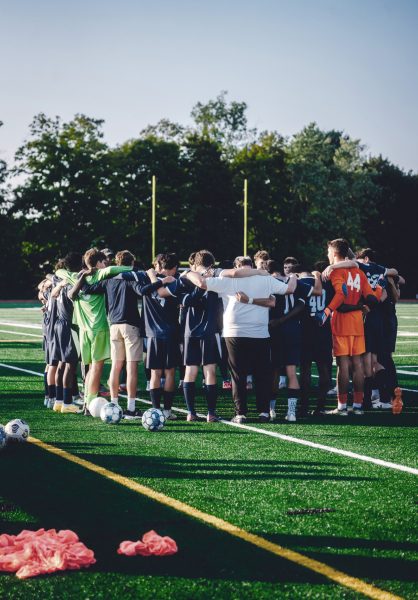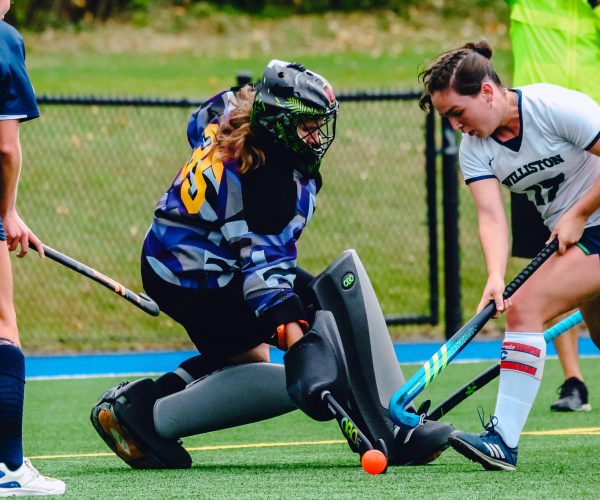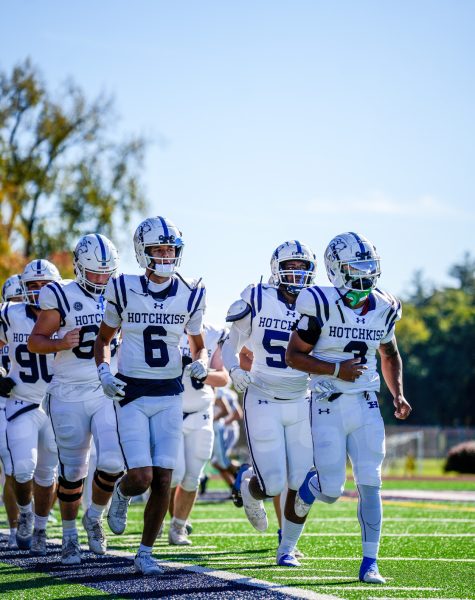COVID-19 Changes Sports Practices
As the school has resumed during the coronavirus pandemic, face masks and social distancing protocols have become the new “normal,” and athletes returning to the fields, courts, and swimming pools are needing to adapt to the new circumstances. Many rules in place from previous years, as well as the overall setup of the Mars Athletic Center, have also changed, in order to increase the safety of athletes and help prevent the spread of COVID-19.
Each team has been provided with hand sanitizer, gloves, and disinfectant sprays. In addition, sharing equipment and water bottles has been strictly prohibited. Athletes have been given individual water bottles that need to be filled up before practice, and outside the athletic center, in order to prevent contact transmission between surfaces. For sports that are contact-based, such as volleyball and football, pieces of equipment are being sanitized every ten minutes.
In addition, the athletic training and weight rooms have also been reconfigured to suit the demands for these new “norms.” Cable machines, bikes and weights are now more distanced and are wiped down after every use to ensure the safety of students. And in preparation for contact tracing and to prevent crowding of people, digital sign up sheets have been established for student-athletes to reserve their times before using the facilities.
With these new policies, athletes experience the challenges of wearing masks and abiding by strict social distancing guidelines as they also cope with the loss of interscholastic games. According to Robin Chandler ’87, co-director of athletics and assistant coach of girls varsity field hockey, the new athletics schedule, where typical game days are now replaced by off days, is tricky for student athletes.
Chase Vermeulen ’22, a returner on JV Soccer, added, “With no games to prepare for, it’s been difficult to see where we need to improve, as practice has just been shooting and passing drills.”
And although there is a cloud of uncertainty obscuring what athletics practices will look like in the future, athletes are adapting to make the most of practices with a positive spirit. Mr. Smith, co-director of athletics and boys varsity football coach, said, “Despite the challenges presented by these COVID guidelines, [athletes] are working hard, having fun, and embracing the opportunity to compete on the playing field. [Their] positive spirit has truly been remarkable.”
Many teams are also striving to spend extra time with teammates outside of practice. For instance, teams are eating dinner together outside, which allows everyone to “get to know everyone [on the team] really well” as Nina Flinn ’21, captain of girls Varsity squash, said.
As reopening continues, Ms. Chandler and Mr. Smith hope that teams will be able to experience more game-like situations, in which squash players play against each other frequently, and soccer and field hockey intrasquads play scrimmage games, for example.
Despite the challenges, athletes hope to remain positive. Flinn said, “I think we all have to try to make the best of it and try to have a lot of fun because I think we can still have a really great season even if we aren’t playing matches [and] if it’s different from past seasons.”

